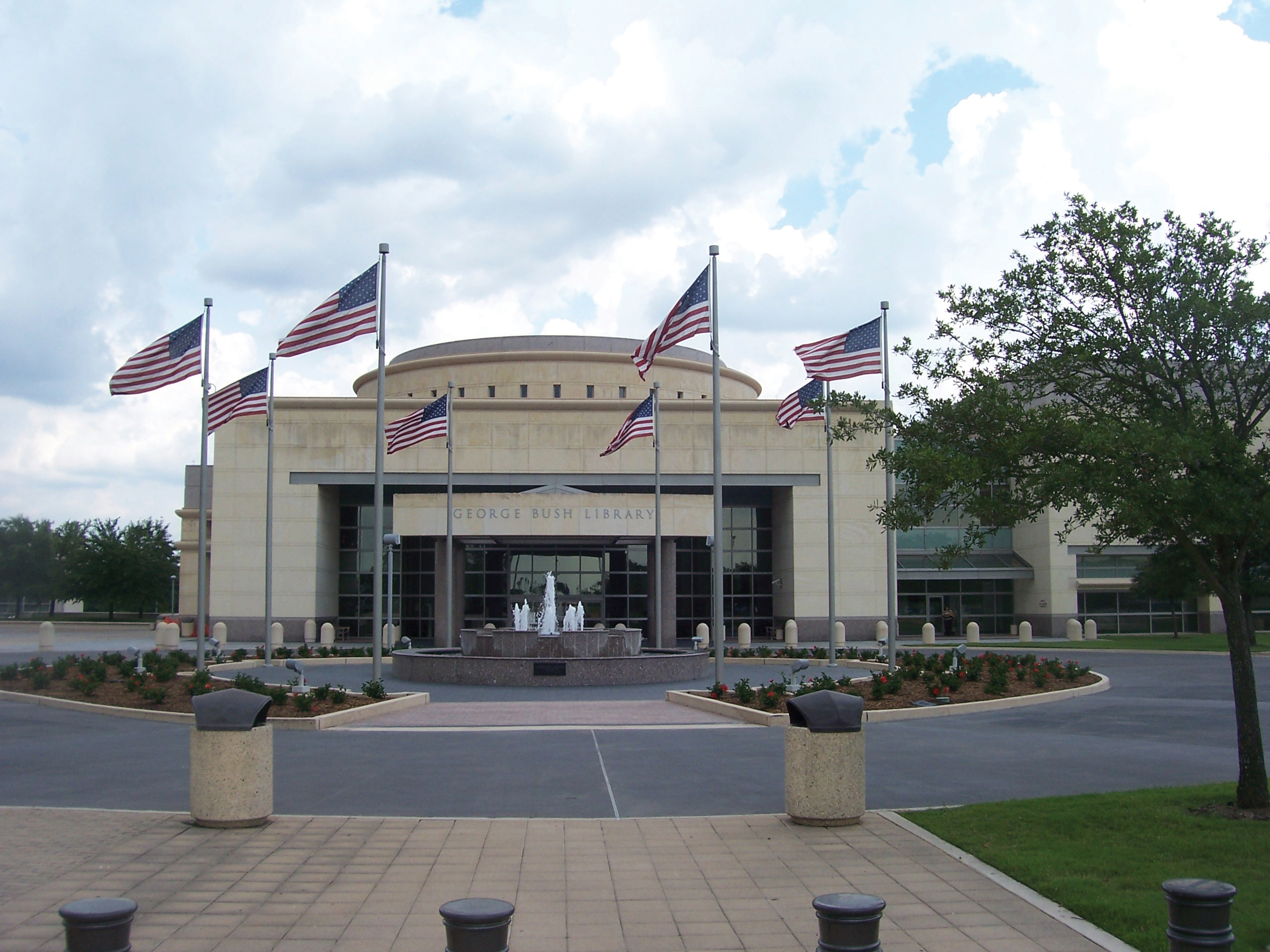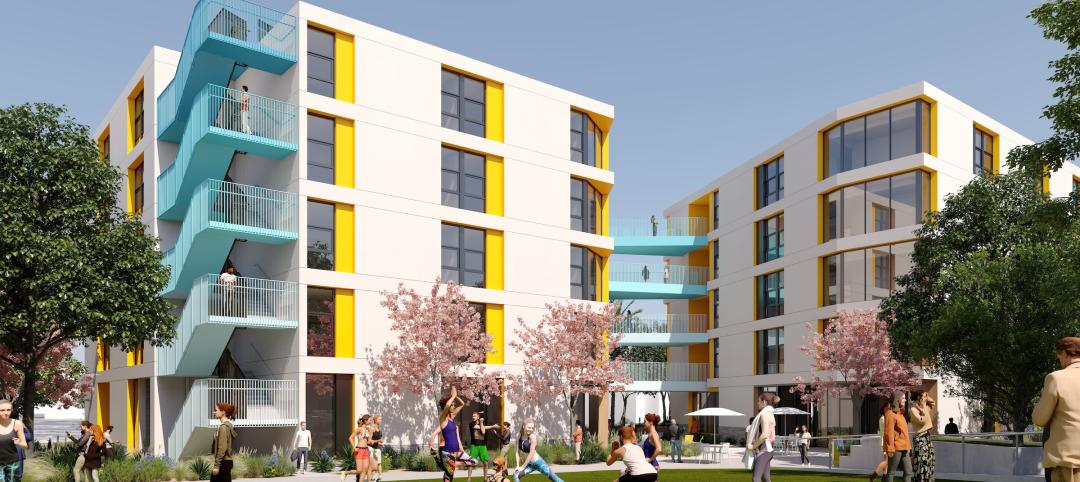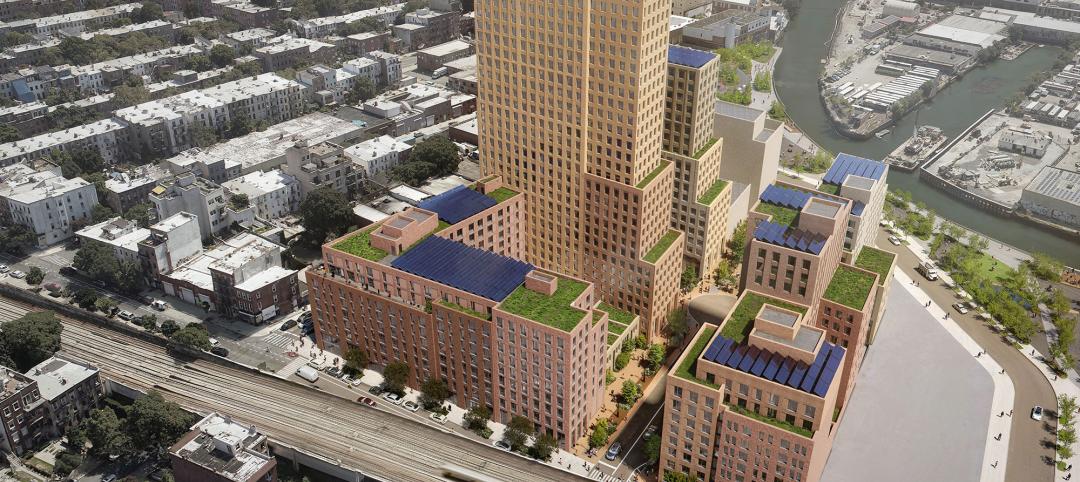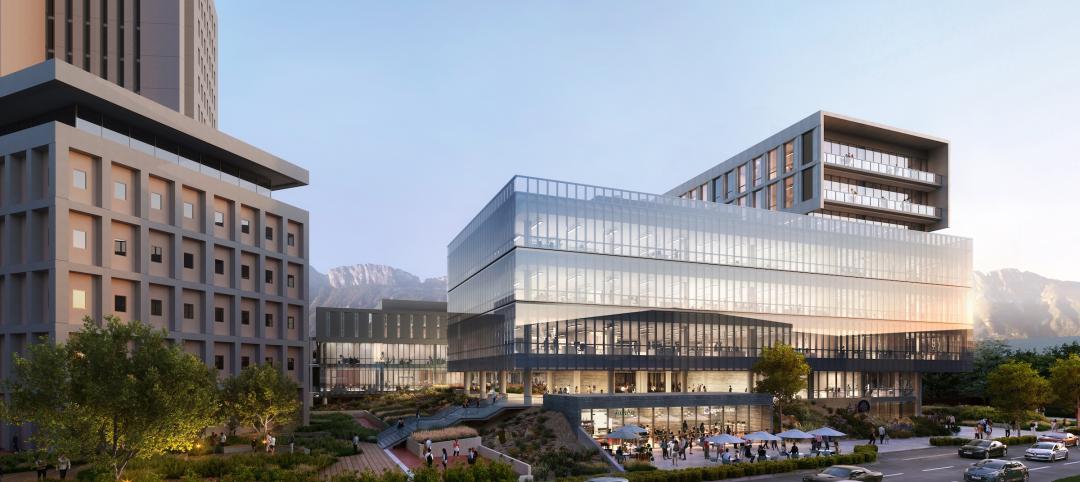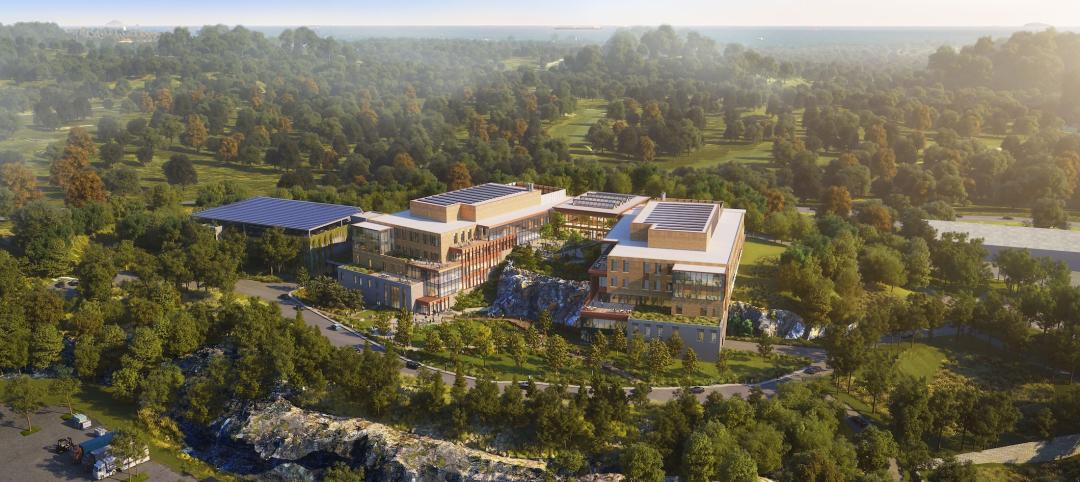Roof leaks can be a museum’s worst enemy, threatening water damage to artifacts and disturbing delicately controlled indoor environments. That’s why an $8.3 million renovation to the core exhibits at the George H.W. Bush Presidential Library and Museum in 2007 was done in parallel with fixing approximately 75,000-sf of the flat, spray-applied polyurethane foam (SPF) roof that had provided almost 10 years of service.
“We were redoing the core exhibit so I thought it was a good time to check the roof,” explains Robert Spacek, Facility Operations Specialist for the George H.W. Bush Presidential Library and Museum.
The original roof was a foam and silicone-coated system. Although SPF roofs can often last 20 years or more, and are renewable indefinitely with simple recoats every 10-15 years, this one was showing some wear and tear. As part of the renovation, there was talk of tearing off the existing roof and replacing it with another solution. This option, however, would be extremely expensive and time-consuming. Plus, the artifacts and records would have had to be moved and the building closed to the public during renovations.
“This particular roof was still in excellent shape and performing well. There was nothing wrong with the base foam roofing insulation,” explains John Austin, Vice President of Spray Polyurethane Foam and Coatings for F.W. Walton Inc., the contractor on the project. “But there were some leaks related to the rotunda and control joints in the windows, and membrane repairs were ineffective to prevent those roof leaks.”
Spacek made a request to the National Archives and Records Administration (NARA) for funding for the roofing project. The NARA architects were subsequently asked to research the cost of replacing the entire roof. After consulting with BASF technical experts, it was discovered that only certain parts needed minor repairs, so a tear-off and replacement could be avoided.
Once the project was approved, the bid went to Houston-based F.W. Walton, Inc. Having found the root of the problem, Austin used ELASTOSPRAY SPF from BASF to perform minor repairs on various parts of the existing roof, followed by a recoat of the entire roof to provide a consistent and fresh aesthetic appeal. This renewal would continue to deliver on the energy savings inherent in SPF roofing systems, prolong the life expectancy of the original roof and provide a quick installation with minimal disruption. All at a far reduced cost compared with a tear off and replacement. Plus, it would divert a lot of waste from landfills.
For more information, contact:
BASF Corporation
100 Park Avenue
Florham Park, NJ 07932
info@basfconstruction.us
construction.basf.us
And thanks to the decision to repair and recoat the original roof, the work didn’t inconvenience the public or expose artifacts to the elements.
“We didn’t have to change anything,” says Spacek, who adds that it was his first big job with this type of roofing system. “Things went really well. The contractor was very easy to get along with. In all honesty, I didn’t understand a lot about this stuff until I started this job. I am very pleased with the results. It has been a very satisfactory experience for me.” +
Related Stories
Student Housing | Apr 19, 2024
$115 million Cal State Long Beach student housing project will add 424 beds
A new $115 million project recently broke ground at California State University, Long Beach (CSULB) that will add housing for 424 students at below-market rates. The 108,000 sf La Playa Residence Hall, funded by the State of California’s Higher Education Student Housing Grant Program, will consist of three five-story structures connected by bridges.
Construction Costs | Apr 18, 2024
New download: BD+C's April 2024 Market Intelligence Report
Building Design+Construction's monthly Market Intelligence Report offers a snapshot of the health of the U.S. building construction industry, including the commercial, multifamily, institutional, and industrial building sectors. This report tracks the latest metrics related to construction spending, demand for design services, contractor backlogs, and material price trends.
MFPRO+ New Projects | Apr 16, 2024
Marvel-designed Gowanus Green will offer 955 affordable rental units in Brooklyn
The community consists of approximately 955 units of 100% affordable housing, 28,000 sf of neighborhood service retail and community space, a site for a new public school, and a new 1.5-acre public park.
Construction Costs | Apr 16, 2024
How the new prevailing wage calculation will impact construction labor costs
Looking ahead to 2024 and beyond, two pivotal changes in federal construction labor dynamics are likely to exacerbate increasing construction labor costs, according to Gordian's Samuel Giffin.
Healthcare Facilities | Apr 16, 2024
Mexico’s ‘premier private academic health center’ under design
The design and construction contract for what is envisioned to be “the premier private academic health center in Mexico and Latin America” was recently awarded to The Beck Group. The TecSalud Health Sciences Campus will be located at Tec De Monterrey’s flagship healthcare facility, Zambrano Hellion Hospital, in Monterrey, Mexico.
Market Data | Apr 16, 2024
The average U.S. contractor has 8.2 months worth of construction work in the pipeline, as of March 2024
Associated Builders and Contractors reported today that its Construction Backlog Indicator increased to 8.2 months in March from 8.1 months in February, according to an ABC member survey conducted March 20 to April 3. The reading is down 0.5 months from March 2023.
Laboratories | Apr 15, 2024
HGA unveils plans to transform an abandoned rock quarry into a new research and innovation campus
In the coastal town of Manchester-by-the-Sea, Mass., an abandoned rock quarry will be transformed into a new research and innovation campus designed by HGA. The campus will reuse and upcycle the granite left onsite. The project for Cell Signaling Technology (CST), a life sciences technology company, will turn an environmentally depleted site into a net-zero laboratory campus, with building electrification and onsite renewables.
Codes and Standards | Apr 12, 2024
ICC eliminates building electrification provisions from 2024 update
The International Code Council stripped out provisions from the 2024 update to the International Energy Conservation Code (IECC) that would have included beefed up circuitry for hooking up electric appliances and car chargers.
Urban Planning | Apr 12, 2024
Popular Denver e-bike voucher program aids carbon reduction goals
Denver’s e-bike voucher program that helps citizens pay for e-bikes, a component of the city’s carbon reduction plan, has proven extremely popular with residents. Earlier this year, Denver’s effort to get residents to swap some motor vehicle trips for bike trips ran out of vouchers in less than 10 minutes after the program opened to online applications.
Laboratories | Apr 12, 2024
Life science construction completions will peak this year, then drop off substantially
There will be a record amount of construction completions in the U.S. life science market in 2024, followed by a dramatic drop in 2025, according to CBRE. In 2024, 21.3 million sf of life science space will be completed in the 13 largest U.S. markets. That’s up from 13.9 million sf last year and 5.6 million sf in 2022.


